From January 13-15, the 9th International Conference on Biorefinery and Biomanufacturing (ICB2025) was held in São Paulo, Brazil. Jointly organized by Beijing University of Chemical Technology, São Paulo State University, and the University of Campinas, with support from the Qingdao Institute of Bioenergy and Process Technology at the Chinese Academy of Sciences, the conference aimed to actively respond to the Global Development Initiative. It provided an important platform for global experts, scholars, and entrepreneurs in biorefinery and biomanufacturing to exchange ideas, thereby promoting technological innovation and industrial development in these critical fields. Nearly 200 representatives from countries including China, Brazil, and Germany attended the conference, with over 70 representatives delivering academic presentations that shared cutting-edge technological advances and application scenarios in the field.
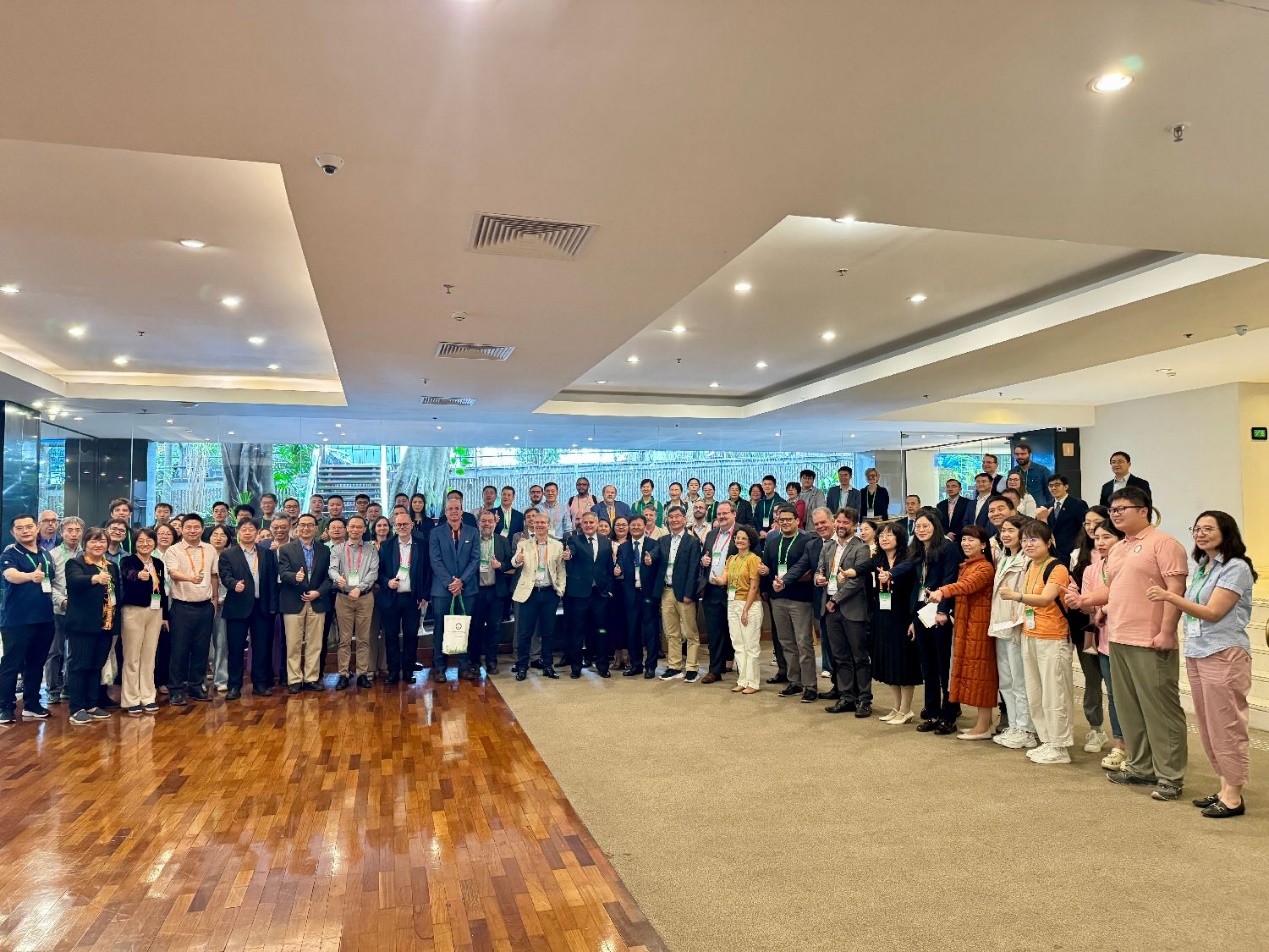
Group Photo of Attendees
The opening ceremony was attended by distinguished guests including Tian Yuzhen, Acting Consul General of the Chinese Consulate General in São Paulo; Tan Tianwei, President of Beijing University of Chemical Technology and an academician of the Chinese Academy of Engineering; César Martins, Vice President of São Paulo State University; Ana Maria Frattini Fileti, Vice President of the University of Campinas; and Ulrich Schwaneberg, Director of the Biotechnology Institute at RWTH Aachen University and Leibniz Institute for Interactive Materials.
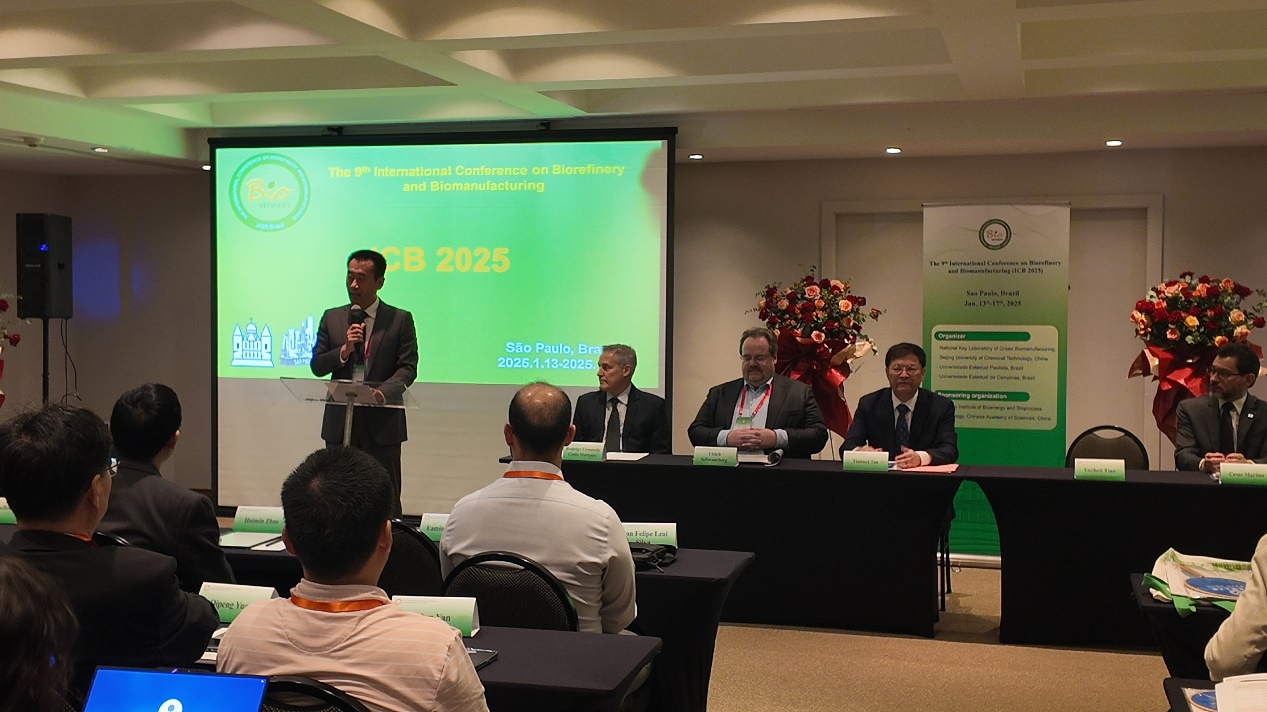
Tian Yuzhen’s Address
In his address, Tian Yuzhen highlighted the significance of this inaugural conference in Brazil, emphasizing its importance as a platform for sharing experiences and innovative ideas. He underscored its positive contribution to the Global Development Initiative and the building of a community with a shared future between China and Brazil. Tian introduced the achievements of President Xi Jinping’s visit to Brazil, stressing that, as important developing countries, China and Brazil share common challenges in economic development and sustainable progress. He also noted São Paulo State’s leading position in biotechnology and low-carbon economic cooperation, expressing hope that participants would take this opportunity to implement the important consensus reached by the two nations’ leaders and further enhance bilateral cooperation.
Tan Tianwei emphasized that biorefinery, synthetic biology, and biomanufacturing technologies are crucial drivers for achieving sustainable development goals. He noted that these technologies not only improve the utilization efficiency of renewable resources but also provide effective solutions to global climate change and resource shortages.
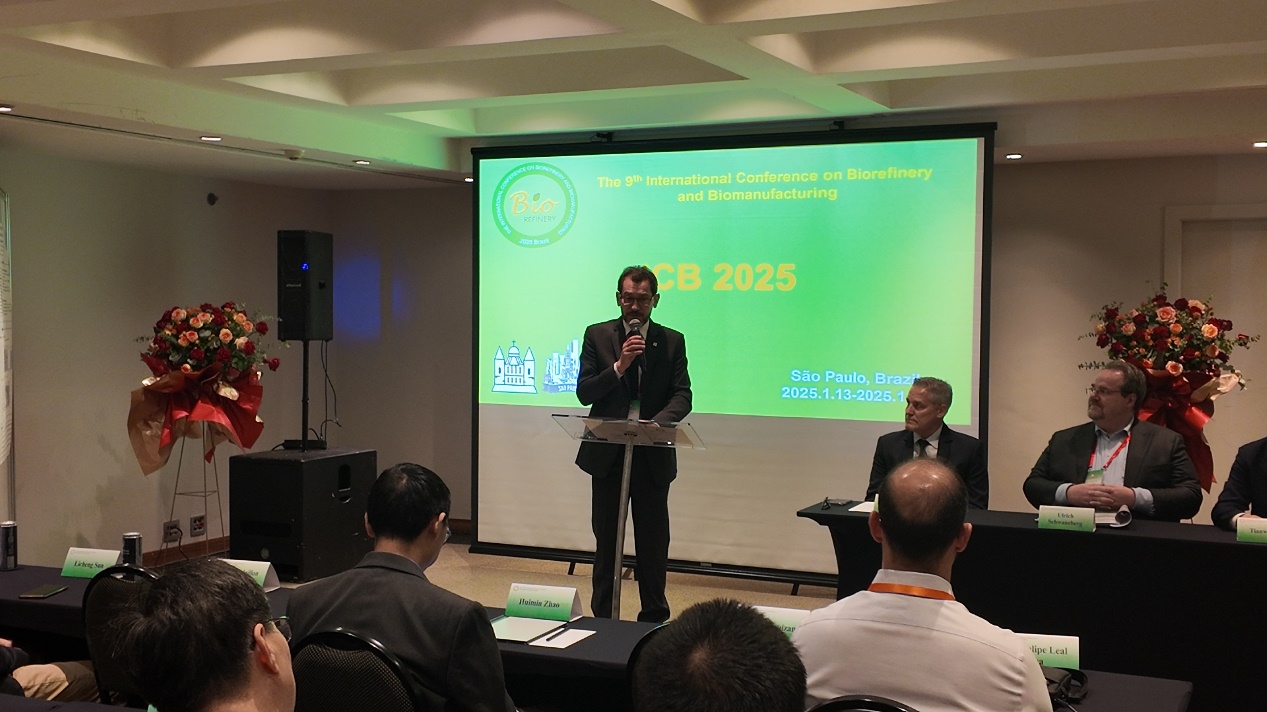
César Martins’ Address
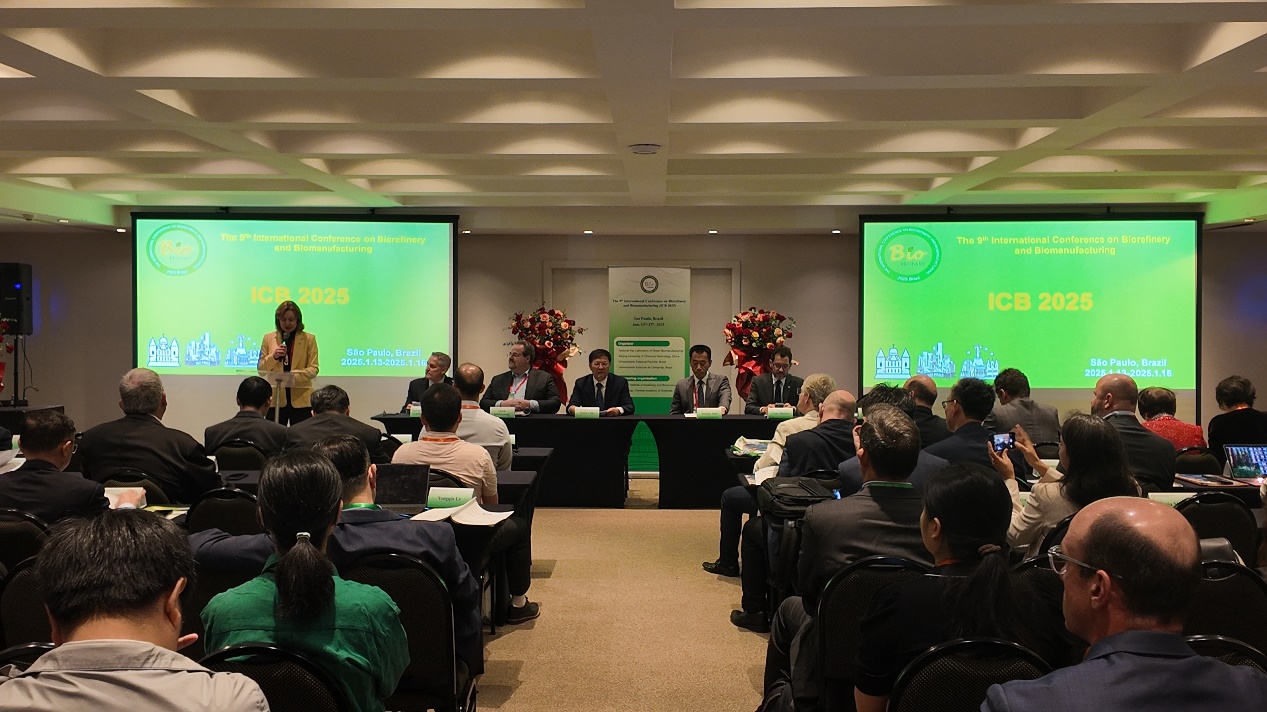
Ana Maria Frattini Fileti’s Address
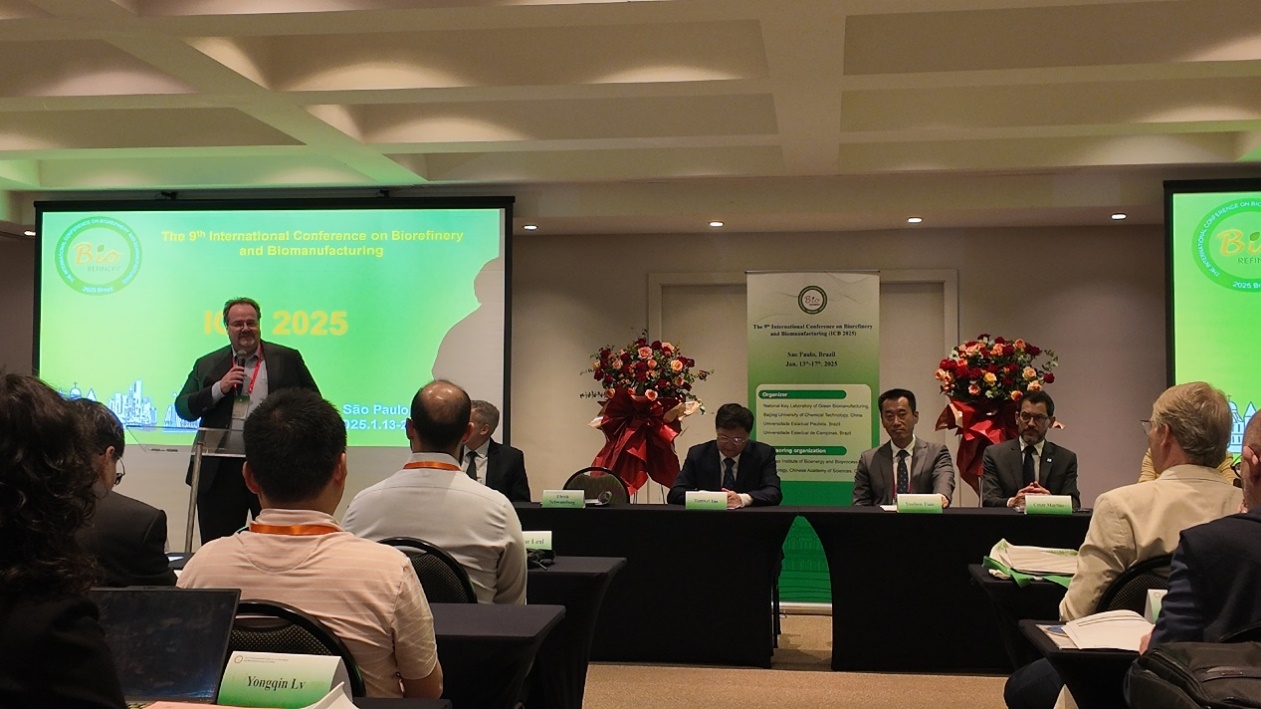
Ulrich Schwaneberg’s Address
César Martins, Ana Maria Frattini Fileti, and Ulrich Schwaneberg unanimously highlighted biorefinery’s profound significance in achieving sustainable development goals. They stressed that developing biomanufacturing and biorefinery technologies will help address global challenges of climate change and resource constraints. Moreover, they underscored the great importance of international collaboration in biorefinery, arguing that through joint efforts to promote technological innovation and application, stakeholders can collectively tackle current global challenges and contribute more substantially to global sustainable development.
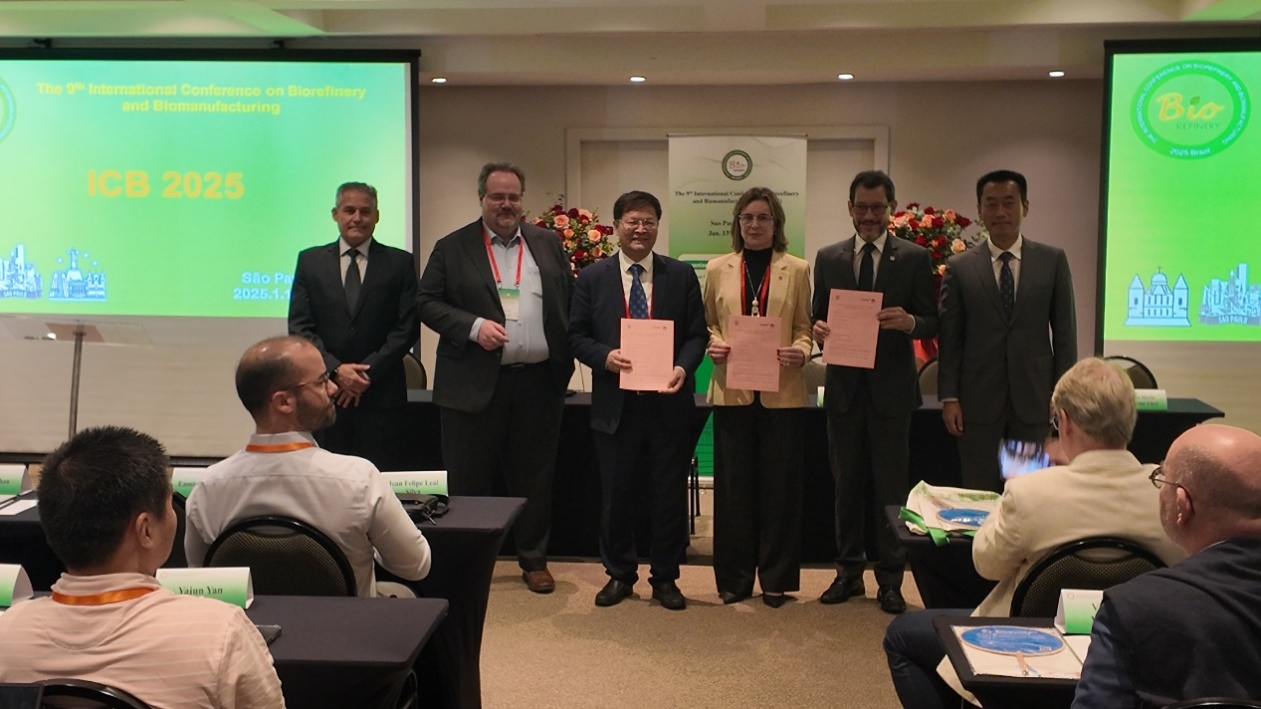
Signing the Agreement on the Establishment of the China-Brazil Joint Biorefinery Research Center
During the opening ceremony, China and Brazil signed the “Agreement on the Establishment of the China-Brazil Joint Biorefinery Research Center,” which aimed to strengthen cooperation through the establishment of a joint center for biorefinery and biomanufacturing. Tan Tianwei formally presented the memorandum of understanding to Professors César Martins and Ana Maria Frattini Fileti. The ceremony marked an important step for both countries in promoting innovation and sustainable development.
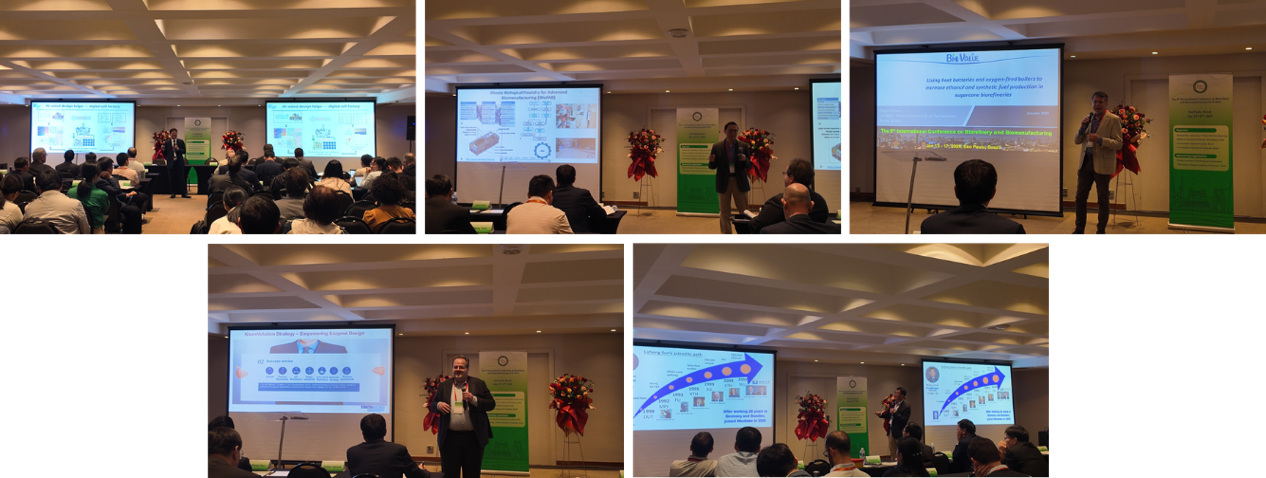
Tan Tianwei, Zhao Huimin, Diogo Ardaillon Simoes, Ulrich Schwaneberg and Sun Licheng Delivered Keynote Speeches

Zeng Anping and Volker F. Wendisch Delivered Keynote Speeches
Following the opening ceremony, Professors Tan Tianwei, Zhao Huimin, Diogo Ardaillon Simoes, Ulrich Schwaneberg, and Sun Licheng delivered keynote speeches on their respective topics. The conference featured four sub-forums, hosting 21 plenary presentations, 16 invited talks, and 24 oral presentations from January 14-15. Topics encompassed synthetic biology and metabolic engineering, C1 conversion and sustainable green carbon biorefining, biocatalysis and heterogeneous catalysis, bioenergy, bio-based materials, and bio-based chemicals. Several internationally renowned scholars shared their latest research progress in biomanufacturing and biorefinery technologies.
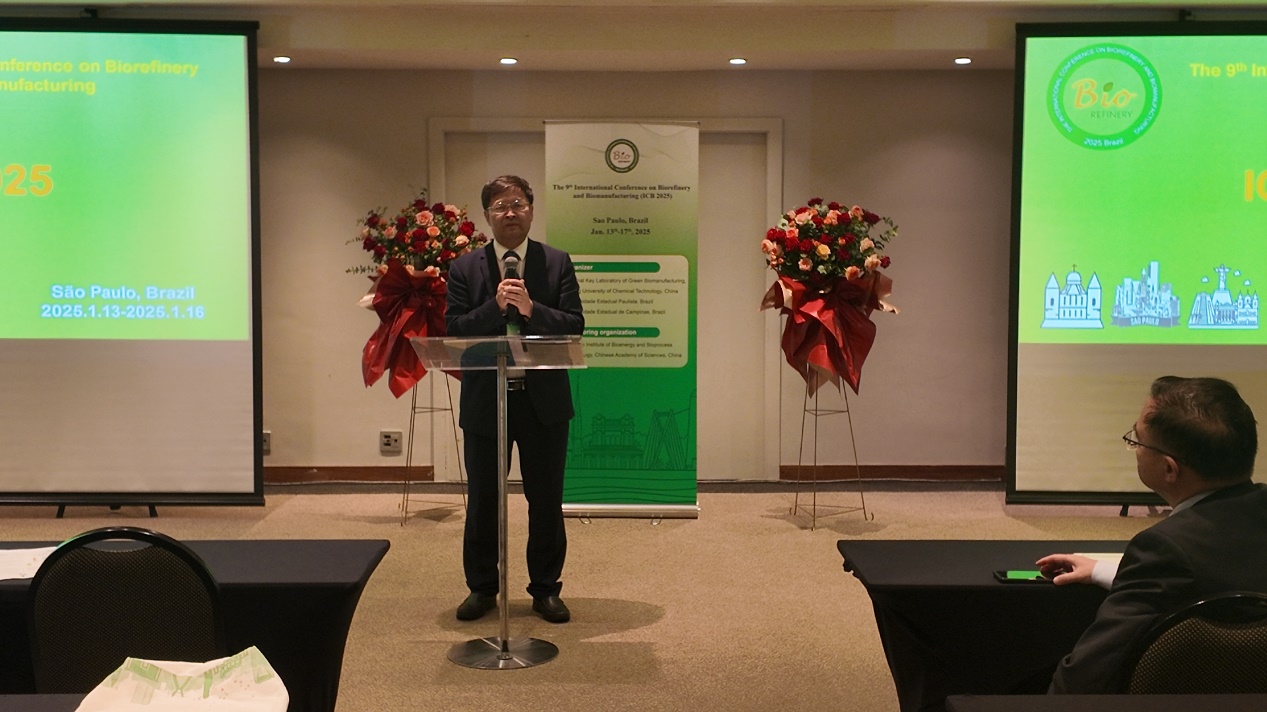
Tan Tianwei’s Address in the Closing Ceremony
The closing ceremony on the afternoon of January 15 proceeded as scheduled. Tan Tianwei, President of Beijing University of Chemical Technology and an academician of the Chinese Academy of Engineering, emphasized the conference’s success and expressed gratitude for participants’ active engagement. He noted that the conference not only provided a communication platform for industry professionals but also laid a foundation for global cooperation in biorefinery and biomanufacturing. After the closing ceremony, Professors Zeng Anping from Westlake University and Volker F. Wendisch from Bielefeld University delivered keynote speeches. Professor Su Haijia concluded by expressing anticipation for ICB2027 which is scheduled to be held in Beijing.
